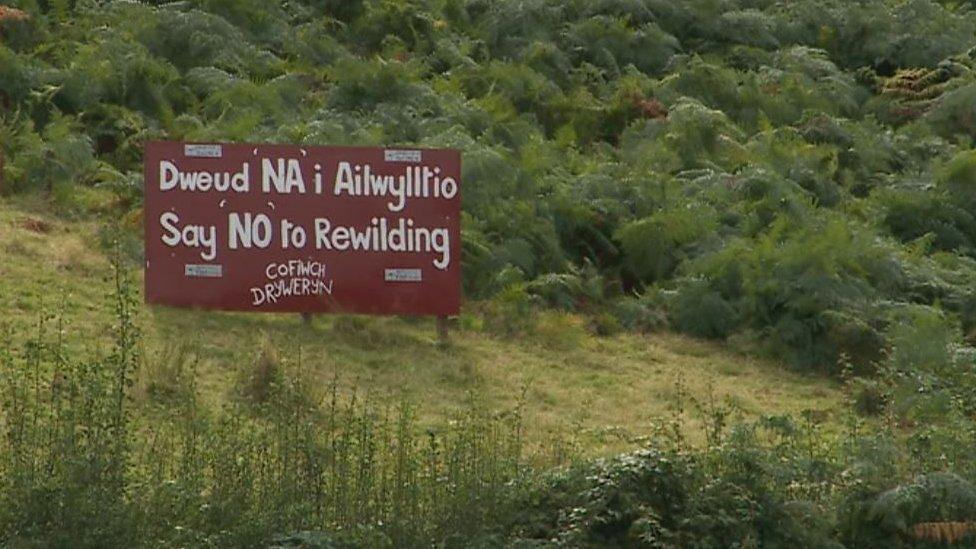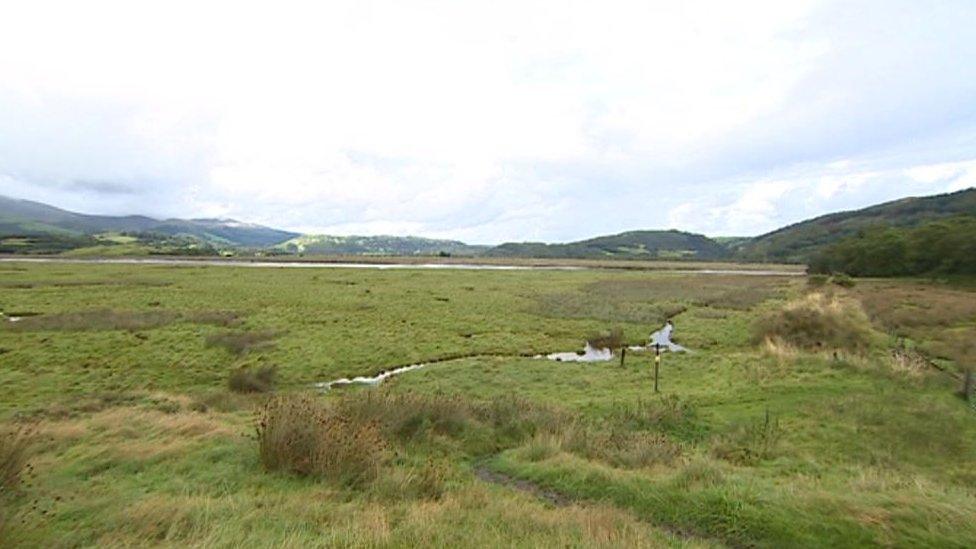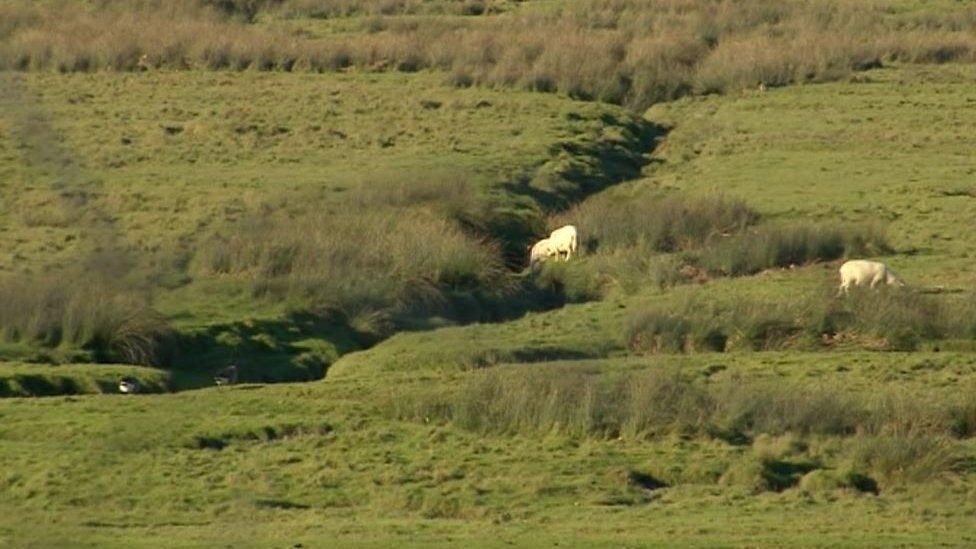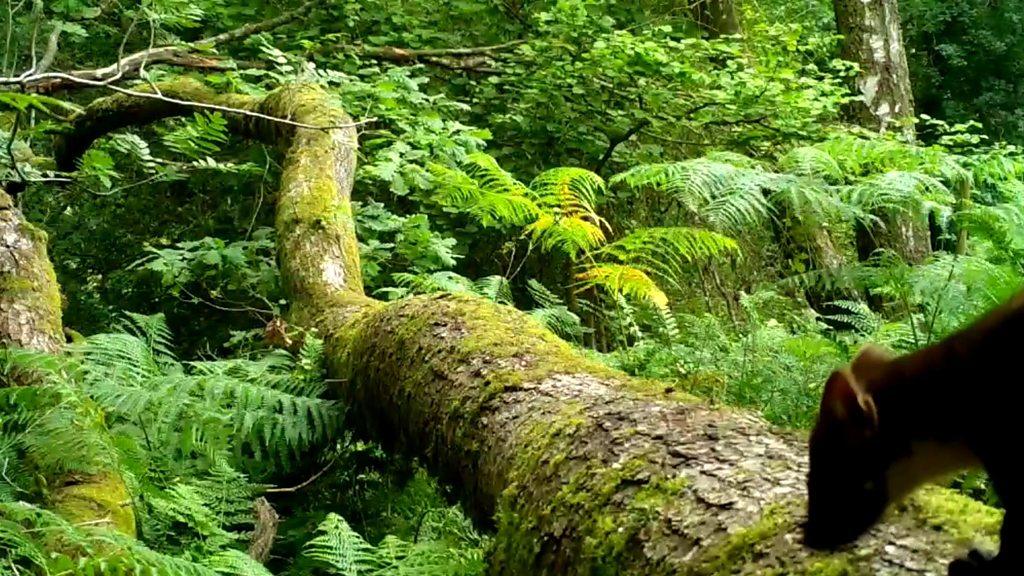How Shropshire ideas may help the angry rewilding debate
- Published

In the Cambrian Mountains there’s strong local opposition to rewilding
It seems we live in divided times but even so it seems strange to say there's a nature conservation idea out there that is wildly controversial.
Seen as either vital and brilliant or seductive and horrific depending which side of the debate you are on. But such are the passions aroused by rewilding.
I've been fascinated by rewilding ever since I chaired a debate on the topic for BBC Farming Today. At its heart, it's a simple idea. Our current approach to nature conservation doesn't seem to be working with about 40% of species in decline, so why not try something really radical instead?
And that's where rewilding comes in. We step back and leave nature to recover on its own. Who could object to that?
So for Inside Out I've been looking at the battle over rewilding and seeing if nature conservationists in the Midlands might offer a way out of the angry impasse over the issue?
Wolves and bears
One of the biggest problems with rewilding as a concept is what does it actually mean? Charity Rewilding Britain, external were at pains to explain to me that is doesn't mean rounding up people and removing entire communities from the landscape to be replaced by wolves and bears.

Supporters of rewilding say there’s nothing natural about this landscape
Instead they say any rewilding project will be very long term. Allowing the restoration of ecosystems till the point where they can take care of themselves. So maybe one day wolves might possibly return but there's decades of work ahead of that.
For Inside Out I went to see the site of Rewilding Britain's biggest project; Summit to Sea, external in Wales. At the moment this is mainly a landscape shaped by upland farming so that means plenty of sheep. You might think this sort of familiar countryside is beautiful, even breathtaking but for core fans of rewilding all those sheep and the farmers that own them are keeping a firm lid on biodiversity. Remove the sheep and the landscape would return to a thriving, more natural state.
And here's where the conflict comes in because you won't be surprised to learn that those sheep farmers who live and work within this area feel their entire way of life is under threat from the project. As one said to me he can see why it's such a seductive idea, but actually he knows this landscape and removing the sheep will make things worse not better in his view. More than that, how would we feel if someone came into Birmingham and told us to knock down that tower block and let nature take over?
Shropshire

Sheep. A vital part of a centuries old way of life? Or human interference that stops nature in its tracks?
While we were filming it was clear the argument of the Summit to Sea plans were coming to a head and indeed just a few days ago Rewilding Britain announced that in the face of strong local opposition they are pulling out of the project. It's unclear what form the £3m plan will now take.
But in the Midlands have we found another way? In Shropshire I went to see how experts from the Wildlife Trust there are changing to landscape to help a newly discovered colony of pine martens while at the same time taking account of the needs of the people that live and work here.
It's a middle way in the rewilding debate that relies on linking rewilded areas with green corridors for wildlife to use. And perhaps it's an idea that Rewilding Britain might be using in the future. According to the blog post, external announcing their withdrawal from the Summit to Sea project they're now exploring rewilding on a smaller scale. Just like we see in Shropshire.
Watch BBC Inside Out at 1930 on BBC One on Monday 28th October.
- Published11 August 2017

